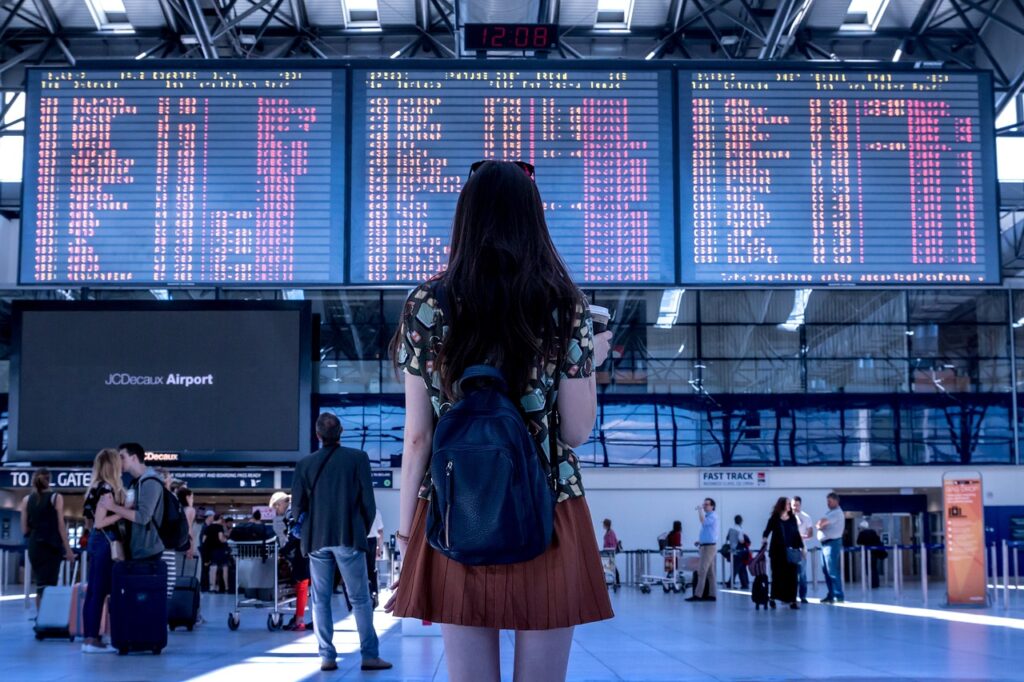Traveling is an exciting adventure, whether it’s for leisure, business, or visiting loved ones. However, it can also present risks, especially when it comes to keeping your money safe. Protecting your finances while on the road is crucial to ensure a smooth and enjoyable trip. Here are some essential tips to help you keep your money safe while traveling.

1. Use Multiple Payment Methods
Relying on a single form of payment can be risky. Diversify your payment options by carrying a mix of cash, credit cards, and debit cards. This way, if one method fails or is compromised, you have backup options.
- Cash: Carry a small amount of local currency for emergencies and small purchases.
- Credit Cards: Use credit cards for most transactions as they offer fraud protection and can be easily canceled if lost or stolen.
- Debit Cards: Use debit cards sparingly, mainly for withdrawing cash from ATMs.
Distribute these payment methods across different locations, such as your wallet, a money belt, or a secure bag, to minimize the risk of losing everything at once.
2. Inform Your Bank and Credit Card Companies
Before you leave, notify your bank, credit union and credit card companies about your travel plans. This prevents them from flagging your transactions as suspicious, which could lead to your cards being temporarily blocked.
- Travel Alerts: Set travel alerts through your bank’s website or mobile app.
- Contact Information: Ensure your bank has your contact information in case they need to reach you while you’re abroad.
3. Use Secure ATMs
When withdrawing cash, use ATMs located inside banks or well-lit, secure areas. Avoid standalone ATMs in remote or less secure locations, as these are more likely to be tampered with by thieves.
- Check for Skimmers: Inspect the ATM for any unusual attachments or devices that could be used to steal your card information.
- Cover Your PIN: Always cover the keypad when entering your PIN to protect it from prying eyes or hidden cameras.
4. Keep Your Valuables Secure
Use a money belt or hidden pouch to keep your money, passport, and other important documents secure. Avoid carrying all your valuables in one place, and never leave them unattended in your hotel room.
- Money Belt: Wear a money belt under your clothes to keep cash and important documents safe.
- Hotel Safe: Use the hotel safe to store valuables you don’t need to carry with you.
5. Be Cautious with Public Wi-Fi
Public Wi-Fi networks are convenient but can be risky for financial transactions. Hackers can easily intercept your data on unsecured networks. Use secure, private networks whenever possible, and consider using a Virtual Private Network (VPN) for added security.
- Avoid Financial Transactions: Refrain from accessing bank accounts or making purchases over public Wi-Fi.
- Use a VPN: A VPN encrypts your internet connection, protecting your data from potential hackers.
6. Monitor Your Accounts Regularly
Keep a close eye on your bank and credit card accounts throughout your trip. Monitoring your accounts allows you to quickly detect and address any unauthorized transactions.
- Mobile Banking Apps: Use mobile banking apps to check your account balances and transaction history frequently.
- Set Up Alerts: Enable transaction alerts to receive notifications of any activity on your accounts.
7. Keep Emergency Contacts Handy
Have a list of emergency contact numbers, including your bank’s customer service and card issuer’s hotline, in case your cards are lost or stolen. These numbers can usually be found on the back of your cards or the bank’s website.
- Customer Service Numbers: Write down or save the contact numbers in your phone.
- Embassy Information: Have the contact information for your country’s embassy or consulate in case of a more severe emergency.
8. Avoid Displaying Wealth
Drawing attention to your wealth can make you a target for thieves. Avoid flashing large amounts of cash, expensive jewelry, or high-end gadgets in public.
- Dress Modestly: Dress in a way that doesn’t attract undue attention.
- Be Discreet: Be discreet when handling money, especially in crowded or unfamiliar places.
9. Use Travel Insurance
Travel insurance can provide coverage for lost or stolen belongings, including money and credit cards. It can also offer protection for other travel-related issues like trip cancellations or medical emergencies.
- Read the Policy: Understand what your travel insurance covers and what it doesn’t.
- Keep Copies: Carry copies of your insurance policy and contact information with you.
10. Plan for Emergencies
Despite taking precautions, emergencies can still happen. Having a plan in place can help you respond quickly and effectively.
- Backup Funds: Have access to backup funds, such as an emergency credit card or a small stash of cash stored separately from your main funds.
- Support Network: Identify friends or family members who can help you financially if needed.
In conclusion, keeping your money safe while traveling requires careful planning and vigilance. By using multiple payment methods, informing your bank, using secure ATMs, keeping your valuables secure, being cautious with public Wi-Fi, monitoring your accounts, keeping emergency contacts handy, avoiding displaying wealth, using travel insurance, and planning for emergencies, you can significantly reduce the risk of financial mishaps on your journey.
For more tips on managing your finances and securing your money, visit North Jersey Federal Credit Union. Our team is here to help you with all your financial needs, whether at home or abroad. Safe travels!
